Ba Be Lake
Ba Be lake is one of the most 16th beautiful lake and one of the most one hundered largest freshwater lake in the world. Ba Be lake is a destination that you should not miss when traveling to Bac Kan.
The lake was formed over 200 years ago with 8km long, 3km wide and 145m high above the sea level. It is surrounded by ancient limestone mountains dating back more than 450 million years.
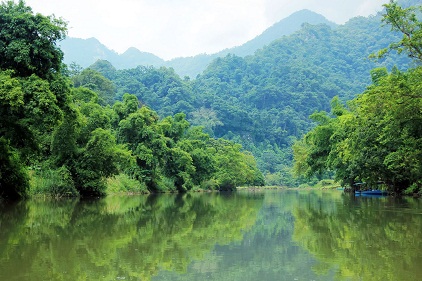
One of the best ways to get a feel for the area on arrival is by boat on one of the three lakes - kayaks for the more adventurous or guided motor boat tours for those who want to relax a little.
The lakes have a lot to offer, including waterfalls, rivers, valleys, lakes, and caves all set amidst picturesque landscapes. With many unique features and beautiful natural sights, Ba Be Lake was recognized as one of 20 special freshwater lakes in the world which need to be protected and developed. From Ba Be Lake, tourists can also visit other neighbouring attractions such as Dau Dang Fall, Puong Cave and Tien Pond.
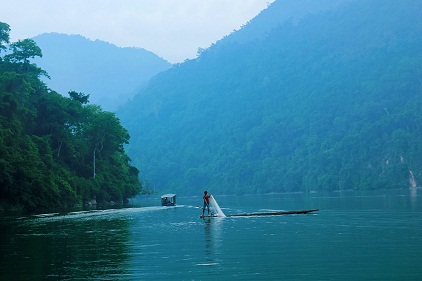
The lake itself is actually three small lakes joined together – Pe Lam, Pe Lu and Pe Leng. The area was established as a national preserved forest and tourist centre in 1978, before being established as Vietnam's eighth national park in 1992. It was recently recognised by UNESCO as the third Ramsar site in Vietnam - an important wetland of the world. Located 145m above sea level, the lake has an average depth of 20-25m and its deepest part is 35m. The lake bed is made up of limestone with millions of crags and crevasses that are ideal for a large variety of marine life - there are over a hundred of species of freshwater fish in the lakes.
Ba Be Lake lies in the middle of the vast limestone mountain range of Ba Be National Park with large and small islands of limestone rising out of the water, many of which can be explored as you kayak around. There are also several caves to find, with beautiful rock formations that have developed over millions of years. Of those, a good example is Puong Cave, through which the Nang river runs under its magnificent limestone structures. It is 30 metres wide, and 300 metres deep with thousands of stalactite and stalagmite structures and a bat colony numbering tens of thousands. Its picturesque entrance lies to the north east of Ba Be Lake, in the hillside of the Lung Nham Range.
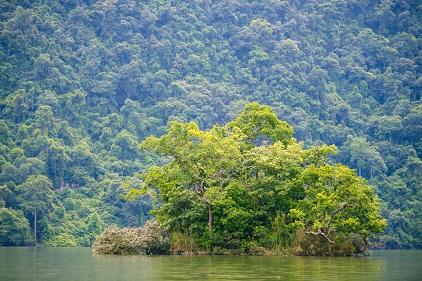
With further exploration of Ba Be National Park, tourists will also begin to discover some of the villages in the region. This is best done by joining one of many trekking tours which can be arranged, as they include a guide that will introduce you to the people of the various ethnic communities that are resident here. Bo Lu Village is a great example, and by visiting the village, tourists have a chance not only to admire old stilt houses but also to learn more about culture and daily life of Tay people.
See more
-

The Museum of Cham Sculpture in Da Nang
With their roots dating back as far as 192 AD, Vietnam's indigenous Cham people lived an Indian way of life in both culture and language. The Cham Museum in Danang is...
-

Pham Ngu Lao Street
Pham Ngu Lao Street in Ho Chi Minh City is on the western edge of District 1 and is renowned as the place where most backpacking travellers stay during their holiday.
-
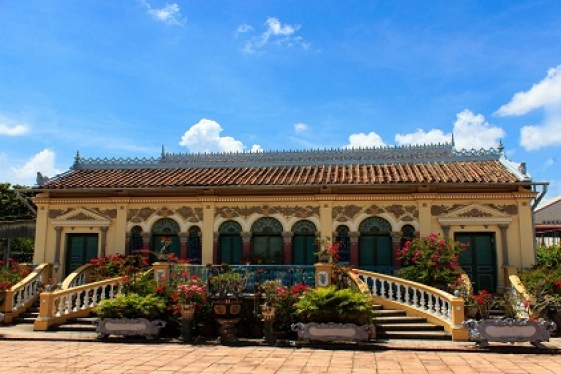
Binh Thuy Ancient House
Binh Thuy ancient house was built 100 years ago and used as a backdrop to many famous films. The house has an unique architect which is the...
-

Thu Le Park
Also known as Hanoi zoo, Thu Le Park is a popular place for families, especially those with young children.
-
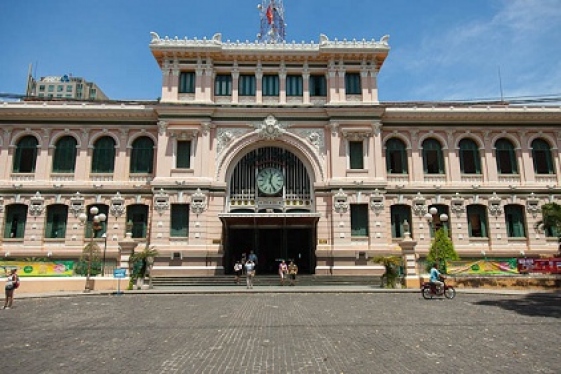
Central Post Office in Ho Chi Minh City
The Central Post Office in Ho Chi Minh is a beautifully preserved remnant of French colonial times and perhaps the grandest post office in all of Southeast Asia. Located next...
-
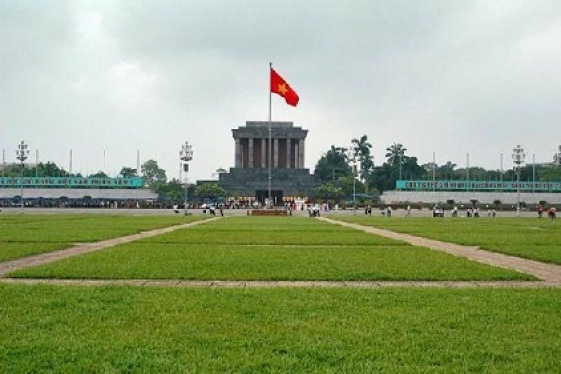
Ba Dinh Square
The square adjacent to the Ho Chi Minh complex is called Ba Dinh square, where many important national historical events in modern history took place.
-
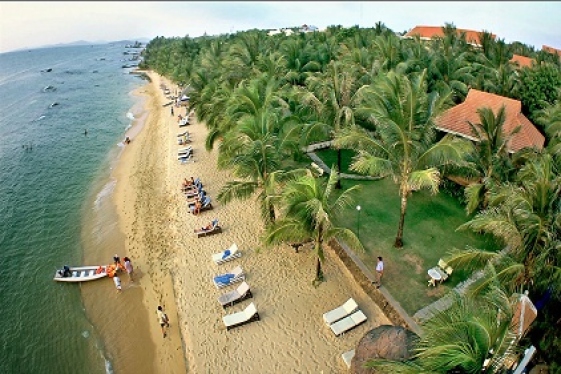
Back beach (Bai Sau)
Back beach in Vung Tau is also known as Thuy Van beach, has a charming landscape, large space, with a wide spread out and fine sand. So the major of tourists traveling to...
-
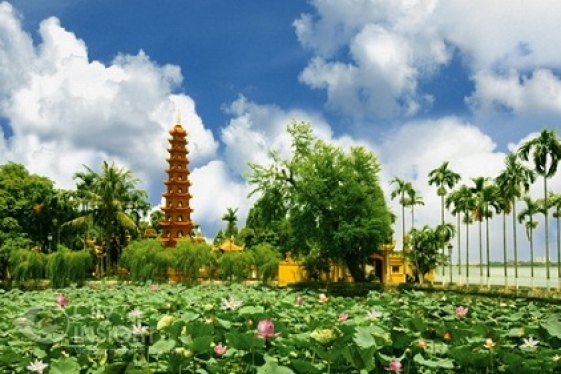
Tran Quoc Pagoda
Located on a small peninsula on the East side of West Lake, Tran Quoc Pagoda is regarded as the most ancient pagoda in Hanoi with its history line of more than 1,500 years.
-
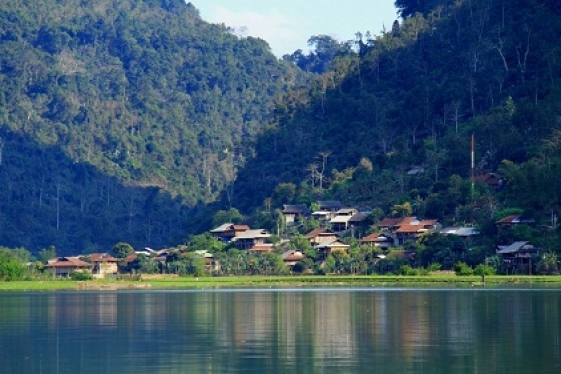
Pac Ngoi Village
Visiting Pac Ngoi village, you not only enjoy the beautiful landscapes of Ba Be lake , forest and mountains but also explore the culture of Tay people. Pac Ngoi village is...
-
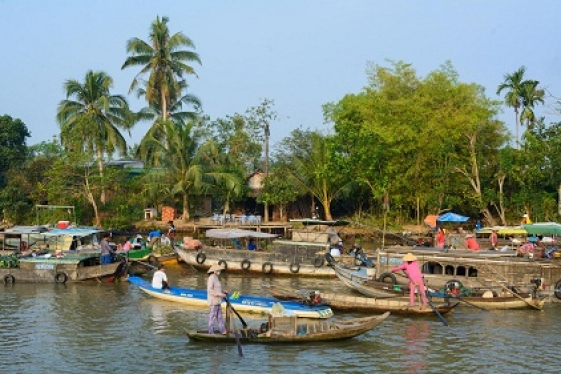
Phong Dien Floating Market
Phong Dien floating market is not only a palce for selling and exchanging products but also a popular attraction in Can Tho . Phong Dien floating market has many different...
Destinations
Most popular tours
-
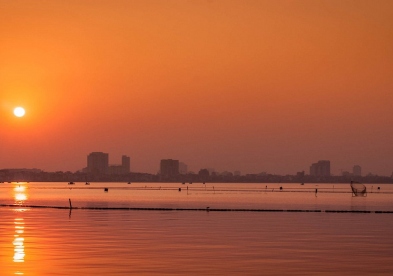
Early Morning Ride in Hanoi
Price from: 15 US$
-
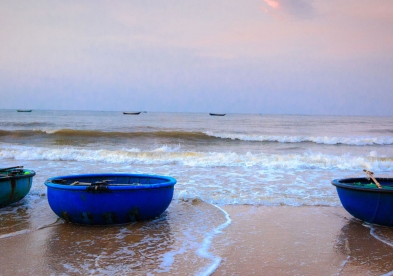
South Vietnam Getaway
Price from: Contact
-
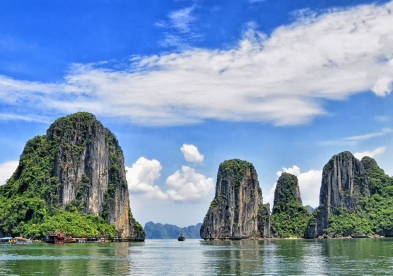
Scenic Vietnam
Price from: 1.120 US$
-
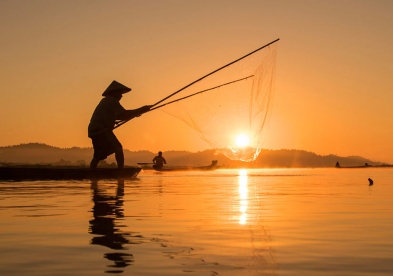
Charm of Vietnam
Price from: 900 US$
Business info
Vietnam Local Guide
- Address: 18th Floor, VTC Online Tower, 18 Tam Trinh Str.,Hai Ba Trung Dist., Hanoi, Vietnam
- Email: info@vietnamguider.com
- Phone: (+84) 0904989890
- Hotline: (+84) 0904989890